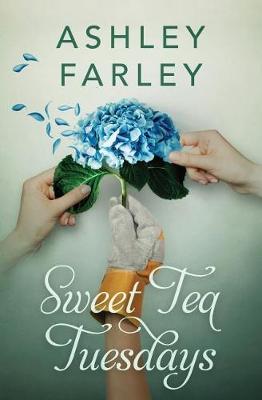Reviewed by Heather on
We come to find out that Lulu is actually a horrible angry woman who hides it behind a mask of gentility. She is thrilled to find out that her favorite daughter who lives in California is coming back for a visit.
We find out that:
She went to California for college
She doesn't visit
She cut her hair short
It is like the Holy Trinity of Lesbian Foreshadowing. /sarcasm
When the prodigal daughter tells her mother that she is gay, the mother starts in on homophobic rants that are absolutely vicious. I certainly didn't expect this level of hatred spilling out of a book that appears to be marketed as a light read. People may attempt to explain this character's hatred away by saying that she is sick and not in her right frame of mind. She may not really mean that. I think that is negated by the fact that the older daughter had stayed away for years because she knew her mother would react poorly to finding out that she was a lesbian.
She's also racist. When she is imaging that her daughter's friend that is coming home with her is a man, she starts to worry about what will happen if she doesn't like him. In her list of concerns is, "What if he was a foreigner or a hog farmer?" Excuse me, what? She also reacts negatively to finding out that the name of the home care nurse she has been recommended is Gladys Guzman.
It is ok to have a horrible character in a book. But this book doesn't limit the tone-deaf narrative to that character. There is repeated use of the phrase "chosen lifestyle" to describe lesbianism from different characters. Lula's younger daughter has just graduated from college and lives in downtown Charleston. Somehow she also doesn't know anything about gay people? "She asked herself if she approved of her sister's chosen lifestyle and was surprised her answer was yes." Well, thank you for bestowing your seal of approval.
She also feels bad about thinking that her mother was bigot. Nope, honey, your mother is a bigot. Go with your gut on this one.
Even though towards the end there is magical reconciliation in the family, you don't see if she changes her mind about gay people or "foreigners". The people around her don't call her out on it much. If fact they use these phrases to describe her:
"Her faith is so strong."
"She was ornery and set in her ways, but she had the kindest heart of them all."
No. This is a woman who told a doctor who called her out on her homophobia that she didn't want to be treated by any LGBT doctors or nurses. She did not have a kind heart.
There are two other women in this story but their narratives took a back seat to Lulu's. They weren't as hateful as she was which is good. I actually liked Georgia who has spent her life as a doctor's wife only to find out that he's been cheating on her for years. She doesn't take his crap (much) when he tries to blame it all on her. Midge is in a new relationship with a man that everyone assures her is rotten. She doesn't listen to her friends or her instincts and yet somehow it is all ok?
I've never been a big proponent of trigger warnings but this book might change my mind. The anti-homosexual hatred in this book is so intense and there is no mention of any discussion of homosexuality in the blurb so people would be unaware of it coming. A mention in the description of conflict between a mother and her lesbian daughter might help people not be blindsided.
Reading updates
- Started reading
- 7 June, 2017: Finished reading
- 7 June, 2017: Reviewed
